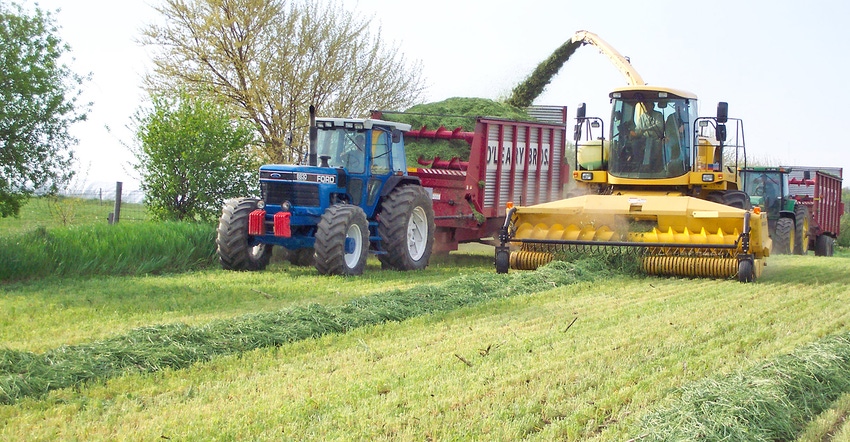February 15, 2017

During his first week in office, President Donald Trump made good on his campaign promise to do away with the Trans-Pacific Partnership. The trade agreement was viewed by many to be an economic necessity for U.S. agriculture since our country exports about 25% of the agricultural products we produce.
But opponents of free-trade agreements like the TPP and the North American Free Trade Agreement say they have led to a decline in manufacturing jobs in America during the past 20 years and are bad for the U.S. While it's easy to notice a number of manufacturers that once dotted Wisconsin, Michigan, Illinois, Ohio and other Rust Belt States have either shrunk their workforces or closed their doors during the past two decades, I'm not sure free-trade agreements like NAFTA are the main culprit.
Impact of technology
Opponents of free-trade agreements like to say these jobs disappeared because companies relocated factories to countries where they could hire labor more cheaply, such as Mexico, Costa Rica and Thailand, to name a few. While I'm sure that happened, I think there is another reason a lot of manufacturing jobs have disappeared that is rarely discussed — computers and robots. Think about it. We have robotic milkers on dairy farms. We have autosteer on tractors, and I'm not sure how many of you have seen them, but John Deere and Case IH have both unveiled driverless tractors that don't have a cab or a seat of any kind.
I recently read an article in Forbes magazine that said during the next two to three decades, 45% of jobs in the U.S. will be replaced by computers/robots. The authors didn't seem alarmed about that figure because they said jobs are evolving and changing all the time. They believe the economy will be able to take it in stride.
I believe robots have already replaced a large percentage of people who used to work in factories. While not all jobs in a factory can be completed by a computer/robot, I'm sure a fairly high percentage can be and have been.
What most economists and politicians fail to realize is that while some factory jobs in the U.S. have been lost due to trade agreements like NAFTA, a lot of jobs in the U.S. have been created, and many of those jobs are ag-related.
NAFTA was implemented in 1994 and is an agreement to remove both tariffs and investment barriers between the U.S., Canada and Mexico. For agricultural products, Canada and Mexico are two of the largest export markets for the U.S.
For exporting agricultural products to Mexico, NAFTA has been of great benefit to the U.S. Before NAFTA was signed, U.S. exports of agricultural products to Mexico had fallen and were being challenged for market share by Latin American and European nations. But after NAFTA, the value of U.S. ag exports worldwide climbed 65% by 2007. According to the USDA, between 2001 to 2006, U.S. ag exports to Mexico rose by $3.6 billion to $10.8 billion. By 2011, the value of ag exports had reached $18.4 billion, making Mexico the third-largest agricultural export market. A wide range of ag products have fared well under NAFTA, including beef, corn, soybeans, vegetables, fruits, feed ingredients, dairy products, wheat and pork.
Exports of agricultural products to Canada rose from $4.2 billion in 1990 to $19 billion in 2011, making Canada the No. 1 export market for the U.S., according to the USDA. Canada accounts for 14% of total U.S. ag exports. In 2010, the top export product categories were vegetables, fruits, snack foods and red meats.
So the next time you hear President Trump say he plans to scrap NAFTA because the U.S. is losing jobs, remember one of the jobs that may be lost as a result of losing NAFTA could be yours. Save your job and stand up for NAFTA.
You May Also Like




